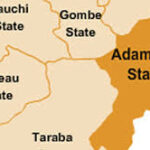Dealers blame spoilt gas processing tool, import issues
FG’s policy to promote LPG threatened
From Christiana T. Alabi, Abdullateef Aliyu, Risikat Ramoni (Lagos), Faruk Shuaibu, Simon Echewofun Sunday (Abuja), Abdulkadir Shehu (Kaduna) & Ibrahim Musa Giginyu, Kano
The continuous rise in the price of Liquefied Petroleum Gas (LPG) commonly called cooking gas is fast eroding profit and raising the cost of doing business, some entrepreneurs in the hospitality business have said.
A survey across the states indicates that a 12.5kg of LPG now sells at N8,300 on the average as against N7,800 barely two weeks ago, rising from N3,500 in April this year.
A Lagos-based caterer, Mrs Olubunmi Ogbori, described the recent hike in the price of LPG as alarming, saying, “We went from N4,500 to over N7,000 within quick succession.”
According to her, the profit margin has dropped significantly because of the rising cost of production due the difference in what she used to budget for gas few months earlier.
A bean cake (kosai or akara) seller at Mangoro in Ikeja, popularly called Iyawo can no longer afford to fry akara with LPG because the high cost is eating into her profit.
Iyawo said, “I cannot bear it any longer. I almost quit the business because I developed eye problem from using firewood before I resorted to gas, and now I cannot afford the gas.”
Experts and gas consumers fear that the hike in gas price could reverse the deliberate policies of the federal government to promote domestic use of LPG.
The federal government in June rolled out plans to ensure the use of LPG with a target to raise its domestic utilisation from five to 90 per cent in the next 10 years.
The government expressed concern that over 900,000 people were negatively impacted annually from the use of kerosene, firewood and charcoal across Nigeria.
Speaking at an LPG sensitisation and awareness campaign in Abuja, Vice President Yemi Osinbajo said effective implementation of the National LPG Expansion Implementation Plan (NLEIP) would move Nigerians away from using cooking fuels that were harmful to health and environment to cleaner and more efficient energy.
However, what is prevalent is the exact opposite of the government’s intent as LPG has gone beyond the reach of the average Nigerian, a survey has shown.
Entrepreneurs, households lament across states
From an average of N7,500 per 12.5kg reported late September, the price for the same content has risen to N8,300 in various parts of the country.
Analysis shows that between April and mid-October, 2021, the price of LPG has risen above 50 per cent.
A Lagos resident living in Mafoluku Oshodi, Blessing Akpan, said, “Kerosene is also expensive. Charcoal on the other hand is not good in the kitchen. Since gas is now sold at N8,000 in my area, we now buy half 6kg in the 12kg cylinder since we can’t afford to buy the 12kg anymore.”
Another Lagos resident, Mrs Folasade Fawaz, lamented that, “Before, if I filled the cylinder, it took up to four weeks. Now that it’s expensive, it takes only three weeks.”
In Abuja, 1kg of gas has risen to N700 as major dealers sell to retailers at 640. This is higher than the N600 to N650 per kg barely two weeks ago.
A resident, Isah Ismailia, said he was surprised when he learnt that 1kg was now N700 in Lugbe as he bought 6kg for N4,200, hence that he was considering charcoal as a substitute.
However, Ganiyat Adedoyin said despite the increase she could not go back to using kerosene due to its cost.
She said, “I pray that money should be available to buy the gas. I can’t use coal or firewood because I had never used them before.”
In Kaduna, a resident, Abubakar Shehu Rigasa, wondered if he would be able to refill his 12kg cylinder at the rate the price was increasing.
Another buyer, Alhassan Muhammad, said he had no choice than to buy the product at whatever cost while reducing the usage at home.
For Sani Hashim Malali, he has been forced to revert to charcoal over the increasing price of cooking gas.
A gas vendor in Kano, Malam Aminu Soja, said he was sad that the price kept rising without a clear explanation, while Murtala Umar Baffa, a father of three, said charcoal had become an alternative. Sagir Bello Bajo, a businessman with 12 children combines kerosene and charcoal as substitutes to gas, saying, “Although the substitutes are better now than gas, their prices are also rising as a litre of kerosene now sells at N350, and is seldom available in most fuel stations.”
Many homes resort to fuel wood
The skyrocketing price of cooking gas has driven many homes to alternative fuel sources, our reporters observed. As a result of the massive shift, the prices of alternative fuel sources such as kerosene and firewood have also increased.
A charcoal seller at Bakin Dogo market in Kaduna, Ismail Shuaibu, said the charcoal mostly came from Kachia and Birnin Gwari forests but that it was becoming scarce due to insecurity in the areas.
He said, “This one I am selling is the one I left in the store some months ago. Charcoal is very scarce now because the trucks transporting it are not going to the forests.”
A charcoal tea seller in the market, Abubakar Usman, said the price of charcoal was also rising and affecting business.
Usman said, “Before now, I was buying half bag that would take me two weeks, but now I buy daily in small quantities.”
Dealers blame spoilt gas processing tool, import issues
Nigeria has over 5,761 billion Standard Cubic Feet (SCF) of proven gas reserves, according to the Organisation of Petroleum Exporting Countries (OPEC). Despite this, the country has no adequate equipment to process gas condensates into LPG for domestic use, dealers have said.
This is said to be part of the problem affecting the price of gas as more people become aware of the fuel and try to adopt it.
A gas seller in Lagos, Mr Mike Ola, said, “The normal gas cannot be used at home, so it has to be exported to another country where the power of the gas is compressed to make it usable at home. After compressing it, it has to be transported back to Nigeria using a vessel; which is expensive.
“We used to have the machine that does the compressing in Nigeria, but it got spoiled about six years ago.”
An LPG plant manager at the Western Bypass in Kaduna said the price of 25 tons of gas increased from N4m to N13m in the last two weeks.
According to him, “The initial price per kg was between N2.50 to N2.55, but currently, the price has risen to N608 per kg.
“Many of our customers have been expressing mixed feelings over the routine increase; mostly on a weekly basis, while some have accused us of extortion, but there is nothing we can do since the increase is not our own making.”
The Team Lead of QwikGas in Lagos, Dr Idris Popoola, noted the incessant price hike had increased the cost of doing and running the business of selling gas.
According to him, higher international gas price, weak naira, government’s implementation of Value Added Tax (VAT) on LPG import and low local production are the factors causing the rise in gas price.
Dr Popoola said, “Should the rise in price continue unabated, people may ultimately abandon the use of LPG. Regrettably, LPG may then become the cooking fuel of the affluent and upper class again. And energy poverty would prevail, hindering the attainment of SDG 7 which is targeting affordable and clean energy for the mass populace.”
A manager at Adebowale Gas in Abuja, Bolatito Adebowale, said, “Those we buy from at the depot told us that the scarcity was due to vessels not bringing the commodity on time. We always claim that Nigeria has gas but the reality is that we are still importing it.”
Corroborating the causes for the high gas price, the Executive Secretary of the National Association of LPG Marketers (NALPGAM), Mr Bassey Essien, blamed new import charges and VAT.
Mr Essien warned that the price of 12.5kg gas could reach N10,000 before the end of the year.
He said, “If the government does not address the recently introduced import charges and VAT, the price of cooking gas may as well reach N10,000 for a 12.5kg cylinder.”
Earlier in the year a 20 metric ton of gas sold for below N5m, but today the same tonnage sells for N10.2m, he added.
Mr Essien further noted that more Nigerians were being forced to return to coal, sawdust, kerosene and other dirty fuels.
He said, “We are very concerned with the high cost as many Nigerians are resorting to the use of firewood, charcoal and kerosene to cook, and the prices of these cooking energies have suddenly gone up.”
NNPC assures on gas policy
The Nigerian National Petroleum Corporation (NNPC) has had a division dedicated to gas for over 15 years, but little impact has been felt by the masses who have been encouraged to use cooking gas as a cleaner fuel.
According to details from NNPC, Nigeria approved the “Nigerian Gas Master Plan” on February 13, 2008, for gas infrastructure expansion within the domestic market. The division, which oversees gas and power, has been urged by industry experts to intervene in the current situation.
It is currently working on the Ajaokuta-Kaduna-Kano gas pipeline project which would power thermal plants to be built in those locations with Liquefied Natural Gas (LNG).
However, there is yet to be any deliberate effort to have NNPC deliver LPG across its retail outlets, our survey revealed.
The Group Managing Director (GMD) of NNPC, Mele Kyari, reacted to the rising gas price recently when he admitted that, “Today, this country is under-supplied with gas. I can tell you that we are having difficulty feeding our network across the country with gas, every day, it is a trouble to deliver gas. Once your supply is weak, it will affect pricing.”
He, however, assured that the corporation was working with its sister agencies on a strategy to expand its network of availability which would ensure gas was directly delivered to homes, thereby eliminating the use of cylinders.
Kyari said, “We are transiting and we will continue to add more volume into the market so that we bring down the price.”

 Join Daily Trust WhatsApp Community For Quick Access To News and Happenings Around You.
Join Daily Trust WhatsApp Community For Quick Access To News and Happenings Around You.


